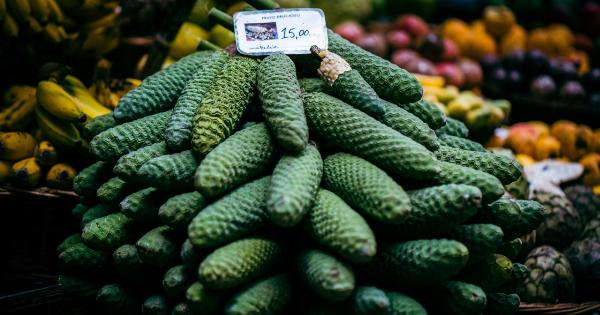High blood pressure, also known as hypertension, is a common condition affecting millions of people worldwide.
It is often referred to as the “silent killer” because it has no symptoms but can lead to serious health problems such as heart disease, stroke, and kidney failure. Managing blood pressure is crucial, and there are various ways to do that, including medication, exercise, and a healthy diet. One of the effective dietary ways to manage blood pressure is by consuming exotic fruits.
Papaya
Papaya is a tropical fruit rich in antioxidants and nutrients such as vitamins C, E, and folate. It also contains potassium, which helps regulate blood pressure.
A study showed that individuals with hypertension who consumed papaya regularly for one month had significant reductions in their blood pressure levels.
Mangosteen
Mangosteen is a tropical fruit that has been used in traditional medicine for centuries. It has high levels of antioxidants and anti-inflammatory properties that help reduce oxidative stress and inflammation.
A study found that consuming mangosteen juice for eight weeks significantly reduced blood pressure levels in individuals with hypertension.
Durian
Durian is a unique and exotic fruit with a pungent smell. It is rich in potassium and other minerals such as calcium, iron, and magnesium.
These minerals help regulate blood pressure by relaxing blood vessels and reducing the risk of cardiovascular diseases. A study found that consuming durian for two weeks significantly reduced diastolic blood pressure levels in individuals with hypertension.
Dragon Fruit
Dragon fruit is a colorful and exotic fruit that is low in calories and high in nutrients such as vitamin C and fiber. It also contains flavonoids, which are antioxidants that help reduce inflammation and blood pressure.
A study found that consuming dragon fruit juice for six weeks significantly reduced systolic blood pressure levels in individuals with hypertension.
Mangos
Mangoes are a popular tropical fruit that are sweet and juicy. They are rich in vitamins and minerals such as vitamin C, potassium, and fiber.
Mangoes also contain compounds such as mangiferin and quercetin, which have anti-inflammatory and antioxidant properties. A study found that consuming mangoes for 12 weeks significantly reduced blood pressure levels in individuals with hypertension.
Guava
Guava is a tropical fruit that is rich in vitamin C, fiber, and antioxidants. It also contains potassium, which helps regulate blood pressure.
A study found that consuming guava fruit or juice for six weeks significantly reduced systolic blood pressure levels in individuals with hypertension.
Passion Fruit
Passion fruit is a tropical fruit that is rich in antioxidants and phytochemicals such as flavonoids and carotenoids. It also contains potassium and magnesium, which help regulate blood pressure.
A study found that consuming passion fruit juice for six weeks significantly reduced systolic blood pressure levels in individuals with hypertension.
Pineapple
Pineapple is a sweet and juicy tropical fruit that is rich in vitamin C, manganese, and bromelain. Bromelain is an enzyme that has anti-inflammatory properties, which help reduce blood pressure.
A study found that consuming pineapple regularly for eight weeks significantly reduced blood pressure levels in individuals with hypertension.
Bananas
Bananas are a popular fruit rich in potassium, which plays a critical role in regulating blood pressure. They also contain fiber, vitamin C, and vitamin B6.
A study found that consuming bananas daily for two weeks significantly reduced blood pressure levels in individuals with hypertension.
Starfruit
Starfruit is a tropical fruit that is low in calories and high in nutrients such as vitamin C and antioxidants. It also contains potassium, which helps lower blood pressure.
A study found that consuming starfruit juice for four weeks significantly reduced diastolic blood pressure levels in individuals with hypertension.






























